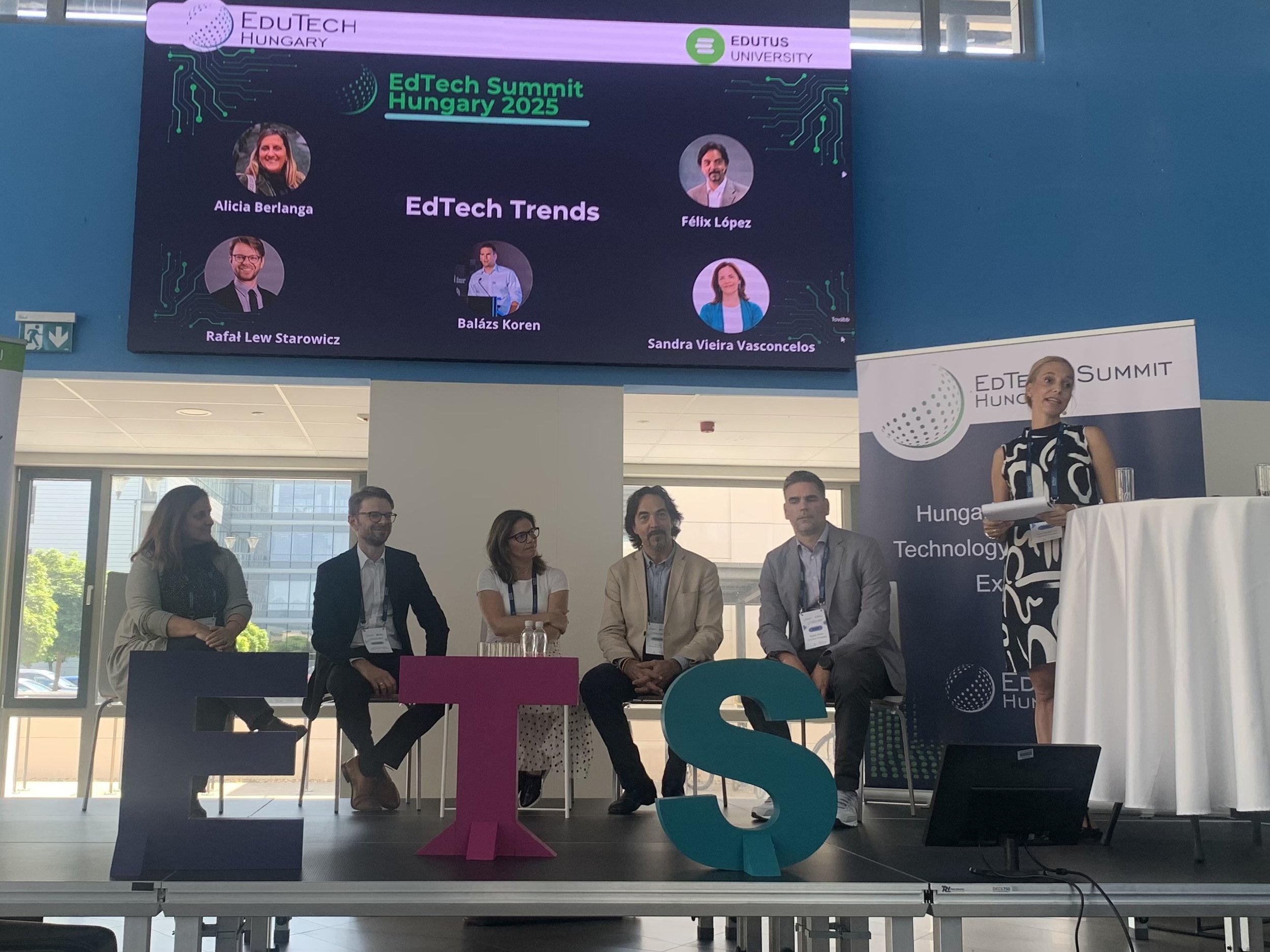Edtech Summit Hungary 2025
The Edtech Summit Hungary 2025 brought together thought leaders from across Europe to spotlight the current state and future direction of education technology. Notably, the European Edtech Alliance (EEA) was well represented, with members from Spain, Poland, Hungary, Sweden, and beyond contributing actively throughout the conference. From opening remarks to the closing sessions, the EEA was frequently referenced as a critical partner in tackling shared challenges—underscoring the growing need for a pan-European approach to innovation in education.
Opening the event, Flora from Edtech Hungary (and a proud EEA member) reflected on her experience in Norway with the Alliance and its importance in driving community and cooperation. Dr. Gergely Palmi, Deputy State Secretary for Vocational Education and Training, emphasized the importance of a personalized, data-driven approach to education, while calling for greater attention to digital wellbeing as learning increasingly shifts online.
In a thought-provoking video address, Jannie Jepsen, CEO of Swedish Edtech Industry underscored the urgency of protecting technology’s role in education—not just for today’s learners, but for generations to come. Similarly, Eniko Szakkos challenged the notion of “digital natives,” arguing that students still need intentional guidance to navigate technology purposefully and critically. As she rightly pointed out, speed isn’t always synonymous with progress.
Dr. Vilmos Simon presented Hungary’s PARIPA program, which aims to bridge the skills gap by combining technical education with the development of soft skills—like teamwork, leadership, and ethics—that are often lacking among young professionals. Workshops and alumni networks are helping reconnect students with the human aspects of learning, and results from corporate partners have been overwhelmingly positive.
One of the most dynamic sessions was the Edtech Trends Roundtable, featuring EEA members Alicia Berlanga (Edtech Cluster Spain), Rafal Lew-Starowicz (Edtech Poland), Félix López Capel (SEK Lab), along with Sandra Vieira Vasconcelos and Balázs Koren (Edtech Hungary). The panel explored major shifts in the sector, especially the controversial move to ban smartphones in classrooms. While Alicia noted the fragmentation and skepticism in Spain, Rafal emphasized the importance of shifting the debate from banning tech to teaching its responsible use. Felix highlighted the chaos created by hyper-localized decisions in Spain’s educational landscape.
When asked to summarize the top trend in one word, panelists landed on themes such as AI, Challenge, and Wellness. Alicia urged educators to meet challenges with creativity. Rafal spoke about hybrid models of learning and the need for aligned policy and funding. Sandra reminded us that despite tech advances, human interaction remains irreplaceable, while Felix spotlighted mental health and wellbeing as emerging priorities. The session ended with a call for collaboration, clarity, and a renewed focus on learner outcomes, rather than tech for tech’s sake.
In short, the Summit affirmed that Europe’s edtech community is not only growing, but maturing—with a clear appetite for more cross-border collaboration, ethical AI integration, and learner-centered innovation.

